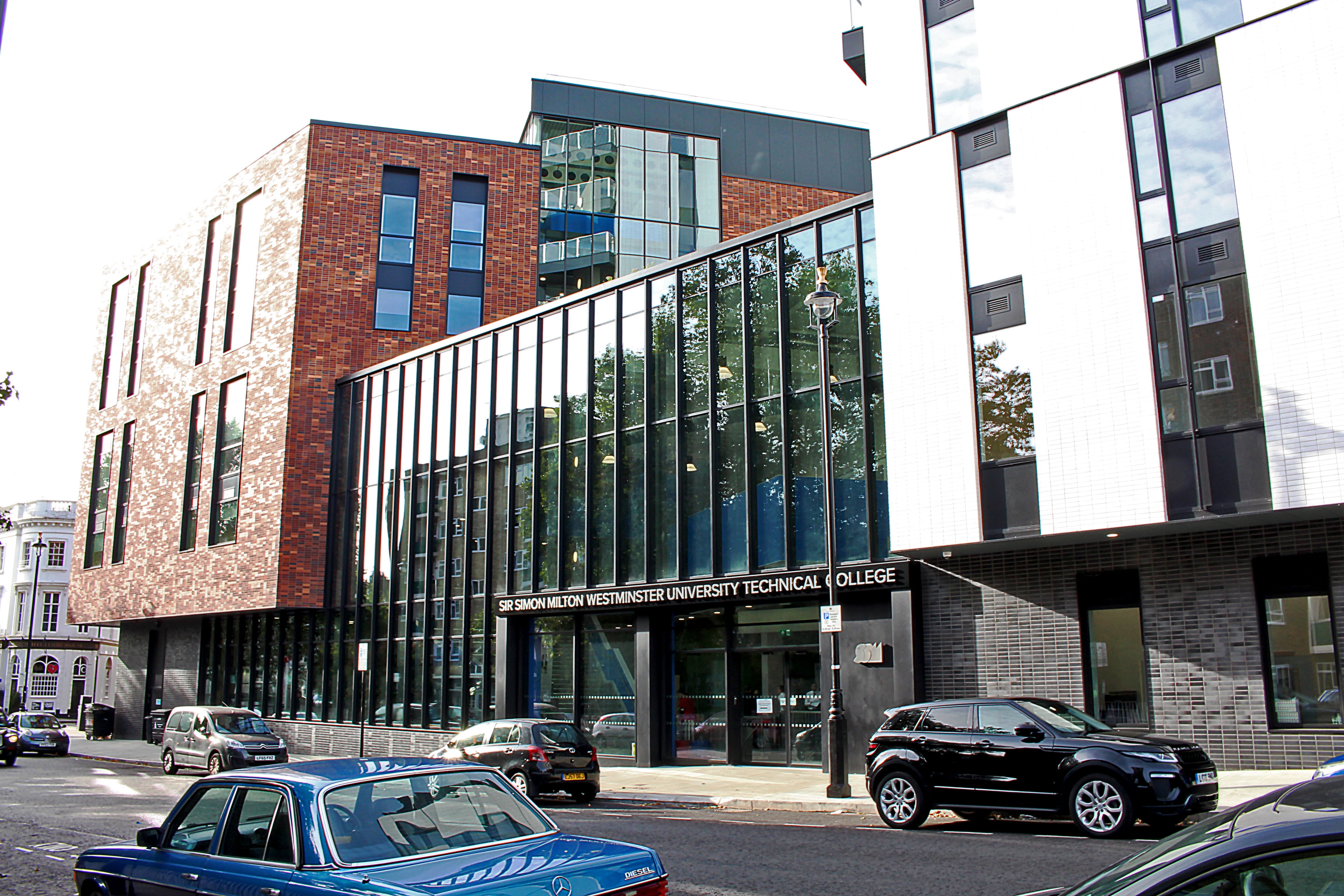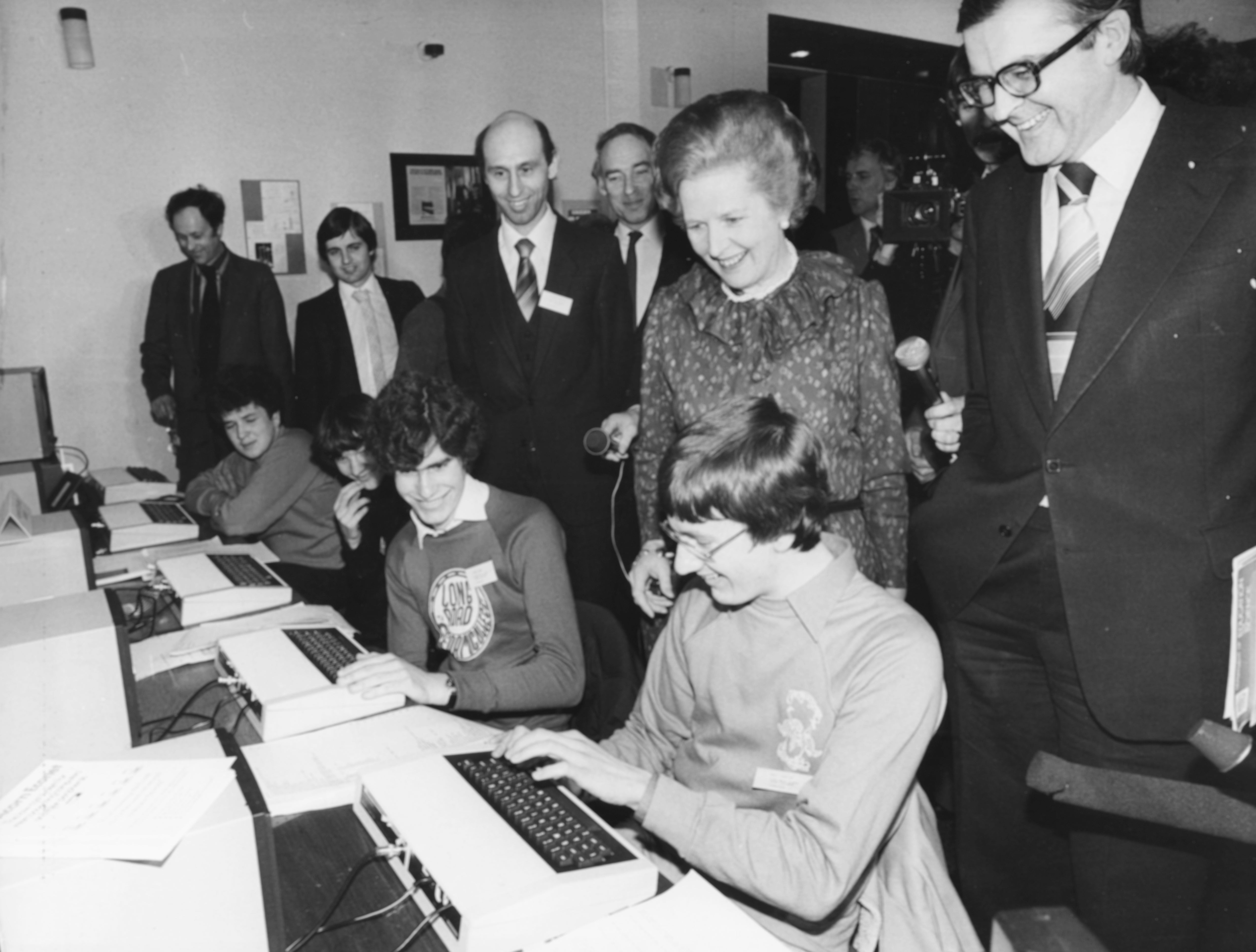University Technical Colleges may not be the answer to the UK’s skills shortage after all
They were set up as an answer to two problems: the second-class status of technical education and the broader issue over workplace skills, so why, asks Mary Dejevsky, do so some UTCs seem to be failing?


A little over a year ago, Westminster residents learned an astonishing and perturbing piece of news. A new school in a brand new building that had opened barely three years before was suspending admissions and would probably close. It had cost a cool £16m.
It so happened that I had followed the fortunes of this school since its inception. Its site was on a bus route I often used, besides a three-way junction, which had afforded plenty of time to observe its progress. What’s more, unlike so many new constructions, it seemed a welcome addition.
The particular plot of land was one of those unfavoured tracts that somehow gets overlooked even when everything else seems to be booming. Next to the spaghetti of railway lines that converge on London’s Victoria Station, it was awkward in shape and location. It had always been betwixt and between, locked into an area dominated by social housing of various vintages, but within yards of exclusive Belgravia and the antique shops of Pimlico Road.
One fine day, the cranes had appeared at Ebury Bridge, along with forests of scaffolding and an army of yellow hard-hats. When the covers came off, they revealed an angular white high-rise of “luxury” flats – not entirely at home in that particular setting – attached to a lower red-brick building with a stylish tinted glass entrance. The name over the entrance, in boxy chrome letters, read “Sir Simon Milton Westminster University Technical College”.
The college had been billed as the “anchor” project for the development and a flagship for this type of school. And soon after it opened, Westminster Council showed it off, holding one of its residents’ meet-the-council evenings there. It reminded me of nothing more than the brand new grammar school my father had shown off to me when I was about eight and he had just become its first headteacher. There was the same smell of newness, the same generous public spaces, and the same promise for the future, as the new premises awaited their rightful occupants.
Unlike that new 1960s grammar school, however, the university technical college (UTC) – one of a new breed of educational establishments intended to help fill the perennial skills gap in the UK’s education system – never really took off. When I passed it after it had opened, there was a strange air of inactivity around it, a lack of the usual school bustle, and a dearth of, well, actual staff and pupils. This, alas, seems to be what sealed its fate.
Westminster UTC was intended to attract 550 students. Its proximity to Victoria, with its many transport routes, spurred hopes that it could attract people from all over London. It was designed and advertised as a specialist science and technology academy, with a focus on transport engineering, with sponsorship from Network Rail – all reasonable, given its location. But it never reached anything like its target numbers.

As the end of the last academic year approached (2021), it was barely one-third full, with just 150 students registered, and in January, the Department for Education (DoE) confirmed that it would close. By then, the 150 had dwindled to 75. The chairman of the board of governors, Andrew Christie, and Matthew Sykes, chief executive of the Sir Simon Milton Foundation – the charity that was the school’s main backer – expressed their regrets. A semi-solution was subsequently found with an establishment called Ada, the National College for Digital Skills, contracting to occupy the premises from September. Its educational purpose would thereby be upheld.
This change, though, marks quite a shrinking of scale and ambition. Ada is not, as it might seem, an institutional acronym, but refers to Ada Lovelace, a 19th-century English mathematician. Nor is the National College for Digital Skills the grand institution the name might suggest: it describes itself as a small college for further education that opened in 2016 and has just two existing campuses, in north and east London.
There is no reason either to take for granted that all’s well that ends – even modestly – well. There is a lot more to the fate of the SSM Westminster UTC than might appear, both as an individual case and as part of the wider education landscape in England, even across the UK.
University Technical Colleges (UTCs) were a late brainchild of Margaret Thatcher’s controversially reforming Education Secretary, Kenneth – now Lord – Baker, and they have been around for just over a decade. The idea went back to the technical schools that were supposed to provide an alternative to grammar schools under the 1944 Education Act, but never happened. The new attempt dates from around 2008, when the concept won the approval of Labour’s then Schools Minister, Lord Adonis. Adonis now sits on the board of the Baker-Dearing Trust that was set up by Baker and the late Lord Dearing – in its words – to promote and develop UTCs.
Everyone I spoke to about UTCs identified the age 14 start as a big problem, with pupils settled in their chosen secondary school and neither they, nor their parents, having much appetite for another transfer
The schools were to cater to students from 14 to 19 and have links, including sponsorship, with local industry and employers, but also with a university – hence the name “university technical colleges”. The first opened in Staffordshire in 2009, and was located across the road from its main sponsor, JCB.
But it was the freeing up of the secondary education sector under the 2010 Conservative-LibDem coalition, with its encouragement for the creation of academies and free schools, which gave the real impetus for UTCs. This also coincided with a new concern about the state of technical education in schools that found expression in the Wolf inquiry and report around the same time.
Baker was optimistic. Within a year he had funding for 15 such colleges and was eyeing 100 being operational by 2015, with several hundred to follow. Parents, he said at the time, were clamouring to send their children to schools that would guarantee them high-quality training, experience of the world of work, and a good job at the end.
Unfortunately, that is not how it turned out. There have only ever been 58 UTCs, and while a number – in Hull, Portsmouth and London’s Docklands – are hailed as successes, no fewer than 11 of those originally set up have closed, with the Westminster UTC making it 12. A number, including one considered for Liverpool, have never got off the ground.
How far UTCs had fallen short of Lord Baker’s early ambition emerged from a National Audit Office report three years ago, which found that many were operating at only half their capacity and that their pupils gained worse grades on average than those in other schools, even though the Government had spent nearly £800m on them over the decade. It questioned the outlay and cast doubt on the schools’ long-term viability.

One of the weaknesses highlighted – which could be described as the UTCs’ Achilles heel – was their age range. Unlike the rest of the state secondary sector, which runs from 11 to 18, UTCs were designed to start at 14, with pupils expected to transfer to a brand new establishment from the school where they had spent just two years and were already on track for their GCSEs. Baker’s argument – which has support among education specialists to this day – was that 11 was too early for children to make big decisions about their future, but that in educational terms, 16 was too late; 14 was just right. But UTCs remained an exception.
Everyone I spoke to about UTCs identified the age 14 start as a big problem, with pupils settled in their chosen secondary school and neither they, nor their parents, having much appetite for another transfer. That left some UTCs starting to look like an option less for high-flyers with technical aspirations than for those who were failing. As Simon Connell of the Baker-Dearing Trust suggested to me, there was a risk that mainstream schools would start to “shove students out” at 14, with the knock-on effect of stigmatising the UTCs.
There was a difficulty, too, in attracting good staff into an essentially untried model of school, and this was compounded when it came to recruiting headteachers. But there was also the opposite problem. While the point of UTCs, as initially conceived, was to offer a whole different approach, focused on practical skills, this difference was progressively watered down, as the DoE increasingly required all schools to comply with the National Curriculum and offer GCSEs and A levels. As Connell put it, “it became difficult for UTCs that they couldn’t do their own thing ... there were 48 schools working out what’s possible, and what’s not.”
In some cases, sponsors had provided impressive state-of-art training facilities, mock-ups of workshops, studios and the like. The distinction between UTCs and mainstream schools thus narrowed to the point where their unique selling point was in jeopardy. Why transfer to another school, that is untried and may well be less convenient to reach, if what is on offer is essentially the same, with only the add-ons, not the essentials, being different?
Then, as always, there were money questions, exacerbated by the UTCs’ reliance on several different sources of funding. The expectation had been that they would raise money from business and industry, especially local business and industry, with these schools – for some at least – providing a feeder channel of skilled, or partly skilled, staff. For whatever reason, however, support was less forthcoming and less generous than had been hoped, leaving the DoE (and therefore the tax-payer) to pick up more and more of the tab. As Connell put it: “If you are going to disrupt the system, you need a replicable model” – and UTCs proved not to be that model.

As the years passed, some UTCs addressed the particular problem of the age range by adapting their courses to start at 11, converting themselves into sixth form colleges, or joining another school in what is called a multi-academy trust. With some shining exceptions, however, they have not led to any significant reform of technical education in the way that Baker had hoped.
The Sir Simon Milton Westminster UTC fits into this bigger picture. But there were also some special, more local, factors that made its life especially difficult and turned it within four years from a favoured flagship into something between a white elephant and a damp squib.
Simon Connell singled out the particularly competitive education environment in London. The huge recent improvement in the capital’s schools, which had seen London rise from almost the bottom of national performance tables to the top, meant that parents had less of an incentive to look outside the existing system. The timing was also unfortunate, because, while there had been a shortage of secondary places at the start of the decade, by 2017, school rolls had started to fall. There was also an existing UTC less than three miles away, on the South Bank.
More to the point, however, may have been the extent to which this UTC became a political football – and this starts with its name. As the longest-serving leader of Westminster Council, Sir Simon Milton was well regarded as an able administrator – so well regarded, in fact, that in 2008 he was poached by Boris Johnson to sort out the chaos that then reigned at City Hall. But Milton had been plagued for much of his life by ill health, and three years later he died, aged just 49.
The Westminster UTC was conceived and partially funded by the charity set up in Milton’s name, so it was natural that it should become one of several sites in Westminster that now bear his name. But this stamped it as a Conservative project, set down in an area that has long returned Labour councillors, at a time when – as it transpired at this year’s council elections – power was already slipping away from the Conservatives as Westminster Council’s natural party of power.
Labour had challenged the project at every turn, in particular, the “£2m of taxpayers’ money” the council had ploughed into what Labour councillors saw as a doomed venture. They will shed no tears that it is closing so soon after they won control of the council last May.
the hope must be that, if any of the plans here survive the multiple distractions currently facing this government there will be a new focus not only on equipping tomorrow’s employees with the skills they need, but on raising the status of practical work
For Westminster UTC, Andrew Christie was at pains to stress that, so far as he was concerned, the Council was in no way to blame for its failure. The local authority, he said had “little relatively little influence and even less control”. He pointed rather to the DoE, which approves and clears much of the funding for UTCs (as it does for academies and free schools), to the London-specific factors already mentioned, and to divisions of principle among the governors about what to do. In particular, he said, the governors had passed up a chance to link up with a nearby academy until it was too late.
All that said, however, it is hard to see the failure of Westminster UTC as limited either to the specifics of London and its highly political context, or to the defects in the initial concept – including that start at 14. In many ways, its troubles, like those of other UTCs, reflect the UK’s longstanding and overarching failure to offer a sufficiently attractive alternative to the increasingly academic curriculum that has come to prevail – even as politicians, business and industry continue to lament the lack of “skills”.
Germany is always cited as an example of how to do these things, with proficient schools for less academic pupils and qualifications in practical skills that are prized. And this is true. But while Germany may be the model, many European countries manage to equip their young people with a combination of competence in the basics, along with a professional qualification in a practical skill, and respect that as something worth having. Almost nowhere is there the same gulf in social status between the academic and practical as there is in this country, and the trend to see university as the only way to go has arguably only widened the gap.
For all that Kenneth Baker was making a determined attempt to address the twin problems of the UK’s skills shortage and the low status of many technical and practical qualifications, his UTCs proved unequal to the task. They could not be made to fit into the system, but nor did they gain sufficient support to challenge and change it.

From Baker’s perspective, in fact, things have only become worse. Another of his enthusiasms, the BTEC qualifications in practical skills are being abolished, to be replaced by employment-geared T-levels, which he sees as untried and not offering a proper alternative to A-levels as a route into higher education. The risk, he says, is that this only narrows the options for those less academically inclined.
And the status problem with technical education and training persists.
The prevailing attitude remains: that technical skills and apprenticeships are jolly good for the nation and for other people’s children, but not for our own. Further education and technical colleges are still – in many people’s minds at least – a second-class sector, and for everyone who blames Tony Blair for wanting 50 per cent of school-leavers to go on to university (and so downgrading other training possibilities), many others think 50 per cent is not ambitious enough.
There are two straws in the wind, though, that suggest this might just change, leaving the tantalising thought that Baker’s UTCs, while flawed in so many specifics, could actually have been ahead of their time. One is the book, published last year, and written by David Goodhart – who has a knack of anticipating changes in the public mood before they happen. Its title, Head, Hand, Heart: Why Intelligence Is Over-Rewarded, Manual Workers Matter, and Caregivers Deserve More Respect explains itself.
The other is the attention paid not just to “skills”, but to how to organise and validate their acquisition, in – wait for it – the Government’s recent white paper: Levelling up the United Kingdom. Many of the changes proposed here replicate what Baker was trying to do with UTCs. The plan now, though – and it is a very detailed plan – is to integrate them into existing institutions, including Colleges of Further Education, rather than interposing them as competitors.
Of course, this is as much about national self-interest and the bottom line as it is about concern for inequality and the UK’s lagging social mobility. As the white paper spells out (and is well known): “The more deprived geographical areas of the UK also see a higher prevalence of low pay and greater reliance on welfare”. But the hope must be that, if any of the plans here survive the multiple distractions currently facing this government – from the Prime Minister’s personal difficulties to soaring energy and food prices, through rising inflation and the war in Ukraine – there will be a new focus not only on equipping tomorrow’s employees with the skills they need, but on raising the status of practical work.
Kenneth Baker’s University Technical Colleges – exemplified by the fate of the Westminster UTC – may be going the way of so many other failed efforts to improve the UK’s lamentable record in skills training. But many of the principles they were intended to enshrine, including the emphasis on local connections, the involvement at once of employers and universities, and the provision of a distinct channel for those seeking a technical education, have lived to fight another day.

Join our commenting forum
Join thought-provoking conversations, follow other Independent readers and see their replies
Comments